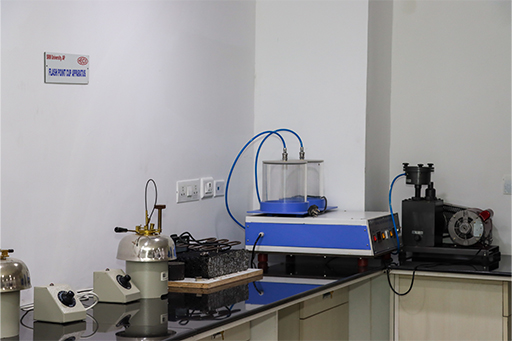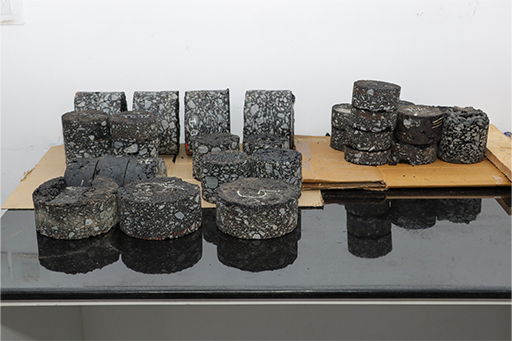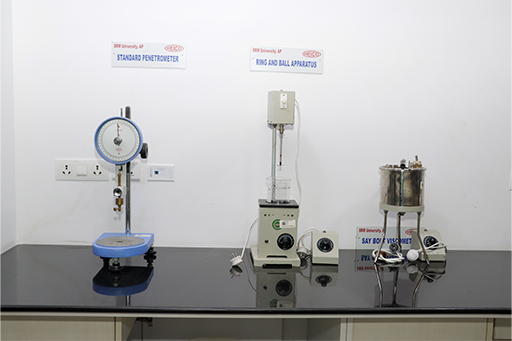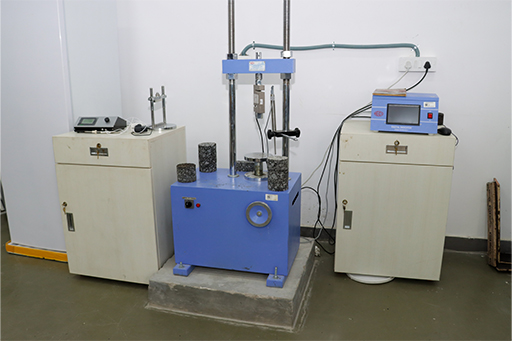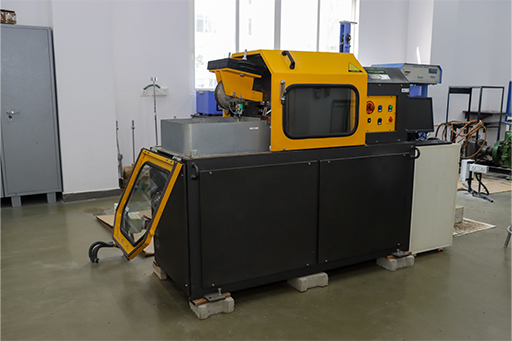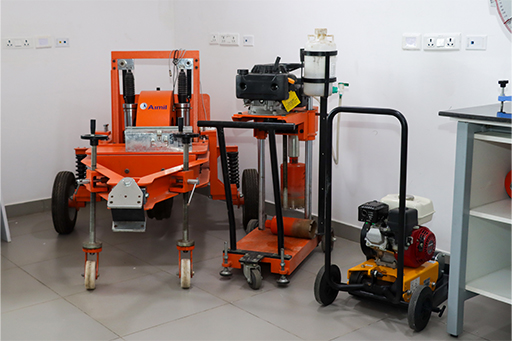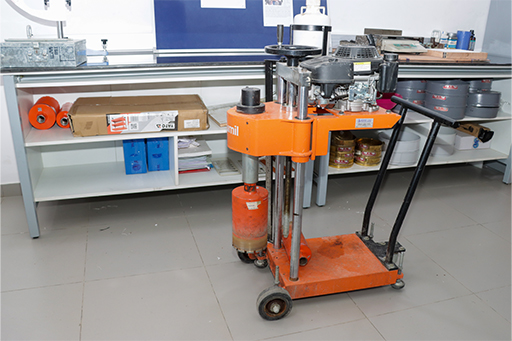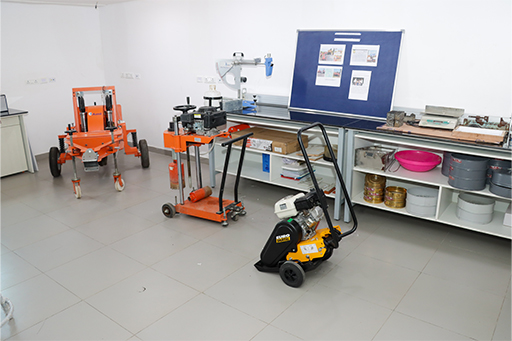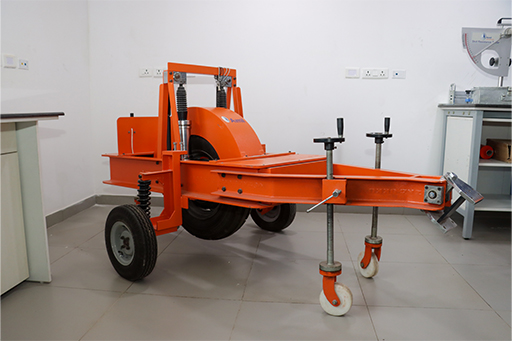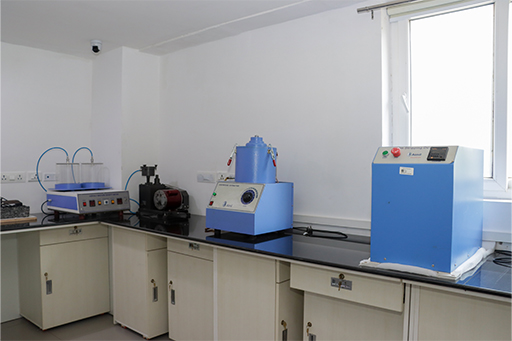The test is performed as per IS:2386 Part IV. Suitable for determining the aggregate crushing value which provides a relative measure of resistance of an aggregate to crushing (aggregate strength) under a gradually applied compressive load.
The test is performed as per IS:2386 Part IV. Suitable for determining the aggregate impact value which gives a relative measure of the resistance of an aggregate to sudden shock or impact (aggregate toughness), which in some aggregates differs from its resistance to a slow compressive load.
The test is performed as per IS:2386 Part IV. Suitable for determining the abrasion value which measures the percentage of wear due to relative rubbing action between the aggregate and steel balls used as an abrasive charge (aggregate hardness).
The test is performed as per IS:2386 Part I. Suitable for determining flakiness index which measures the percentage of aggregate particles whose least dimension is less than 0.6 of their mean dimensions (aggregate shape).
The test is performed as per IS:2386 Part I. Suitable for determining elongation index which measures the percentage of particles in an aggregate that are more than 1.8 times their mean dimension (aggregate shape).
Gradation is carried out as per IS:2386 Part I. Suitable for understanding the measure of how well distributed the sizes of the particles in an aggregate are. A well graded aggregate will have a good range of particle sizes and will have a fair representation from every size of particle.
Sieves (sizes in mm) available (IS 460 – 1962): 100, 80, 63, 50, 40, 37.5, 31.5, 26.5, 25, 20, 19, 16, 13.2, 12.5, 10, 9.5, 6.3, 4.75, 2.36, 1.18, 0.6, 0.3, 0.15, 0.75 and pan.
The test is performed as per IS:2386 Part III. Suitable for determining Specific gravity and water absorption tests to measure the strength and quality of aggregates. The specific gravity test measures the strength of the material, while the water absorption test measures the water holding capacity of the aggregates.
The test is performed as per IS:1203 - 1978. Suitable to determine the hardness and consistency of bitumen used in road construction. The bitumen grades are based on penetration value.
Description
The test is performed as per IS:1205 - 1978. Suitable for determination of softening point which measures the temperature at which bitumen attains a certain degree of softening. It is also useful in confirming bitumen grades obtained by penetration test.
The test is performed as per IS:1209 - 1978. Suitable to determine the critical temperature at and above which measures suitable precautions are required to be taken to eliminate the danger of fire during heating.
The test is performed as per IS:1208 - 1978. Suitable to determine the ductility of the bitumen which represents the distance that bitumen can elongate before breaking.
The test is performed as per IS:3117 - 2004. Suitable to determine the viscosity of bitumen emulsion using Saybolt furol viscometer. It measures the time takes for 60ml of bitumen emulsion to flow through a tube at 250C temperature.
Specifications
Vertical bitumen mixer is used for mixing bituminous materials to prepare the specimens to be used for various tests. The asphalt mixer comes with a heating arrangement to maintain the required temperature (ambient to 200°C) during mixing.
The test is performed as per ASTM- D 2041. Suitable for determining theoretical maximum specific gravity of asphalt mixture at a residual pressure of 4.0 kPa (30mm of Hg) using vacuum pump.
Specifications
Description:
The test is performed as per ASTM - D1559 & IRC: 111 -2009. Suitable for measuring the maximum load sustained by the bituminous material at a loading rate of 50.8 mm/minute and at the standard test temperature of 60°C. The flow value is measured at the total deformation of the specimen at the maximum load. The test is extensively used for designing bituminous mixes.
This roughness testing is performed as per IRC SP 16 - 2004. Suitable for measuring the vertical displacement between the road surface under the probe and the centre point of an imaginary line joining the two points.
The test is performed as per IS:2386 Part IV. Suitable for measuring the skid resistance between a rubber slider and the test surface. Skid resistance is an important pavement evaluation parameter as inadequate skid resistance will lead to higher incidences of skid-related accidents.
Specifications
Description:
The test is performed as per IS: SP 16 - 2004. Suitable for measuring roughness on unpaved roads in terms of unevenness index, which is a cumulative measure of vertical undulation of the pavement surface recorded per unit horizontal length of the road.
The test is performed as per ASTM D2172. Suitable to determine the binder content in the asphalt mixtures and pavement samples (field cores) using centrifugal extractor.
The test is performed as per IRC - 81. Suitable for simple and accurate measurement of deflection in flexible pavements under the action of moving loads with digital analog dial gauge (0.001x25mm). surface deflections obtained by a Benkelman beam under a standard wheel load is a relative measure of the structural capacity of a pavement structure at a given point.
The test is performed as per ASTM D6931-12. Suitable to determine the indirect tensile strength (IDT) of bituminous mixtures. It is conducted by loading a cylindrical specimen across its vertical diametral plane at a rate of 50mm/min deformation and at a test temperature of 25oC. IDT fixture suits for both 100mm & 150mm dia laboratory prepared samples (or field cores). The peak load at failure is recorded and used to calculate the IDT strength of the specimen.
The test is performed as per AASHTO T-283. Suitable to determine sensitivity of bituminous mix samples in the presence of water by determining tensile strength ratio (TST). TSR is a measure to find the sensitivity of the specimens before and after conditioning the sample at temperature of 60 °C for 24 hours. More severe conditioning such a freeze-thaw cycles (-18oC to +60oC) can be simulated with the available freezer and water bath.
Pavement condition and manual distress surveys are performed following appropriate IRC and AASHTO Specifications and FHWA manuals. It is to measure the pavement distress such as cracking, rutting, and roughness, etc. of flexible and rigid pavements. A 3m rutting straight edge, measuring wheel and other required accessories are used.
Design of flexible pavements as per IRC37-2018 using IIT Pave software, AASHTHO 1993, and AASHTOWare Pavement Mechanistic Empirical Design (PMED). Design of rigid pavements as per IRC58-2015.
Preforming traffic studies such as Classified Volume Count (CVC), Turning Movement Count, and Spot Speed Studies according to IRC specifications.


